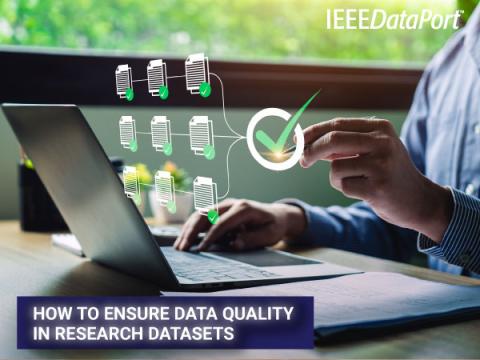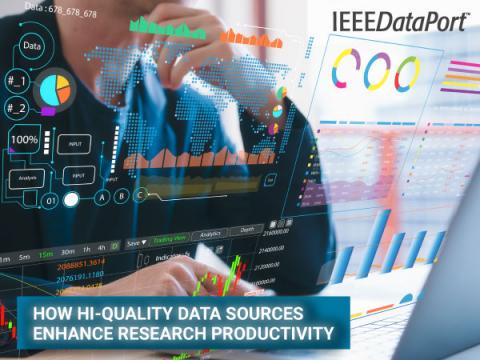Overcoming Financial Barriers to Data Access in Universities
In today's digital age, access to research databases has become as essential as having a library on campus. These vast digital repositories are key to groundbreaking discoveries, innovative solutions, and breakthrough research across all disciplines.
Many institutions face a tough problem. Data is more important than ever for gaining knowledge. However, it is also more expensive to access.
Think of research databases like the great libraries of Alexandria. Now, instead of scrolls, we have digital datasets. These datasets can help research teams work together across continents and achieve progress with real-time collaboration.
This digital transformation has modernized how we conduct research, analyze findings, and share discoveries. From climate science to medical breakthroughs, data accessibility shapes research outcomes, and the quality of education institutions are able to provide.
However, a growing challenge threatens to undermine the positive influence that data offers. Financial constraints increasingly force universities to make difficult choices about which research databases they can afford to maintain. Many institutions are in a tight spot between rising educational costs and limited budgets.
This financial pressure affects:
The breadth of resources available to their research community
The ability to maintain secure data infrastructure
The capacity to support collaborative research projects
The potential to compete globally in research excellence
Additionally, the impact reaches beyond individual institutions. When financial barriers limit data accessibility, they create a ripple effect that touches everything from student learning opportunities to how researchers collaborate. Finding affordable solutions for data access is a fundamental challenge that affects the entire academic ecosystem.
The Current State of Data Access at Academic Institutions
Today's academic landscape faces a complex challenge regarding data access. Many institutions struggle to keep pace with the financial demands of modern data and information management systems.
Universities face three significant hurdles in maintaining access to data and competitive research environments:
Outdated infrastructure and data management systems
Managing outdated infrastructure creates a costly cycle of maintenance and repairs. Think about this: Many universities still use data management systems from the early 2000s. Developers did not design these systems to handle today's large datasets or modern security needs. A typical genomics research project, for example, can create over 100 terabytes of data.
These aging systems:
Consume excessive IT resources
Are vulnerable to cyberattacks
Slow down research processes
Perpetuate inefficient processes
Limited infrastructure budgets
Limited infrastructure budgets force difficult choices between competing priorities. While databases for research are essential tools, they often lose out to more immediate university needs like:
Emergency building repairs
Required compliance upgrades
Standard operating costs
Faculty salary requirements
Managing these budgets is a constant juggling act. Many institutions are unable to invest in the robust data platforms needed for high-quality datasets that their research teams need in order to stay competitive.
Access inequities
What's worrying is the increasing gap in resource access among campus communities. The effects of these disparities are evident. Studies show that institutions with full data access produce 27% more peer-reviewed publications. They also receive 35% more research grants.
Without adequate funding for comprehensive data solutions:
Junior faculty struggle to access specialized databases
Graduate students face limited access to vital research tools
Departments compete for limited database subscriptions
Research teams miss opportunities for collaboration
These barriers create a ripple effect throughout the academic ecosystem. When researchers can't access the tools they need, it impacts:
Research quality and innovation potential
Grant application success rates
Faculty retention and recruitment
Student learning outcomes
Ability of the institution to remain competitive
The gap between data needs and financial resources is growing. This creates an urgent need for better solutions to access data.
Strategies to Overcome Financial Barriers to Data Access
While budget constraints can feel overwhelming, innovative strategies can help expand access to research datasets without breaking the bank. Here's how to maximize your resources and create more inclusive data access opportunities across research datasets at your institution.
Leverage Technically Advanced Data Platforms
Subscription-based research databases offer a powerful solution to data access challenges. These platforms offer an affordable solution to share and access important research materials. This makes them a good choice for institutions with limited budgets.
Additionally, these technically advanced databases for research serve as digital repositories where research data and academic resources can be made widely available to share with teams and other organizations and promote data access to support others scientific knowledge.
Research institutions can leverage these databases and use them for creating guides that help researchers use these datasets and encourage faculty to contribute their own research data. Many universities now maintain institutional repositories where faculty can deposit pre-prints and research data, making them available to the global research community. Key benefits include:
Immediate access to diverse datasets
Cost-effective solutions
Global collaboration opportunities
Regular updates and additions
Reliable high-quality datasets
When compared to free open-source data platforms a subscription-based repository has even more benefits. There are common limitations of open source which have a direct impact on the success of research teams that includes:
Quality control can vary
Dataset completeness isn't guaranteed
Technical support may be limited
Some specialized data might not be available
Collaborate on a Secure Data Platform
Creating a partnership with a subscription-based service can transform how institutions build their dataset library. By utilizing modern technology, you can:
Confidently manage subscription costs for premium research databases
Reduce infrastructure maintenance expenses
Create shared data storage solutions
Support research teams
Increase grant application success rates
This technically advanced approach helps:
Reduce institutional infrastructure costs
Expand access to more resources
Build stronger research networks
Maximize budget efficiency
Invest in Easily Scalable and Cloud-Based Solutions
Modern research databases need flexibility to grow with your needs. Cloud-based solutions typically reduce infrastructure costs. Most have consistent and reliable pricing models. Migration to cloud-based solutions will enable better data accessibility across the campus.
Other important benefits include:
Lower upfront costs
Easier budget management
Improved remote access
Better disaster recovery options
These flexible solutions help institutions begin small and grow as their needs and budgets change, improving data access.
How IEEE DataPort Can Help Address Financial Barriers
Looking for an efficient way to get data access without straining your budget? IEEE DataPort offers a comprehensive open data repository solution that addresses how to get data, rights to data access, and academic financial challenges.
This innovative platform makes the right to access research data more achievable through smart subscription options:
Institutional plans with 10TB of storage per dataset
Flexible user access levels
Reliable and cost-effective pricing models
Transparent cost structure for both basic and premium plans
Beyond data storage, IEEE DataPort delivers value through:
Streamlined Data Management
Simple upload and sharing tools
Secure storage infrastructure
Automated backup systems
Built-in collaboration features
Cost-Effective Scaling
Expandable storage capacity
No hidden infrastructure costs
Predictable pricing
Easy user management
Research Enhancement Tools
Advanced search capabilities
Citation tracking
Analytics dashboards
Integration options
When you need to know how to get data quickly and affordably, IEEE DataPort removes traditional barriers by providing:
Access to high-quality research collections
Tools for cross-institutional collaboration
Support for various data formats
Regular platform updates
The platform's commitment to accessibility means you can:
Support your research teams needs
Add users without complex licensing
Access supportive client resources
Join a global research community
Choose IEEE DataPort to reduce expenses incurred from using traditional data management systems. This practical solution helps stretch limited budgets further while enhancing research capabilities across the institution.
Make Your Budget Go Further with Data Access Strategies
In today's data-driven academic world, access to databases for research isn't just helpful—it's essential. While financial barriers can seem daunting, they shouldn't stand between your institution and research excellence.
We've explored how universities can overcome these challenges through:
Leveraging subscription-based platforms
Embracing modern technology solutions
Optimizing existing resources
These strategies help institutions maximize their budgets while maintaining access to vital free research data. By combining these approaches with powerful platforms like IEEE DataPort, universities can create a more inclusive and efficient research environment without overwhelming their budgets.
Ready to transform your institution's data access capabilities? Take the first step toward affordable, comprehensive data management:
Evaluate your current data access needs
Explore IEEE DataPort's flexible subscription options
Contact an IEEE DataPort representative to discuss custom solutions for your institution
Don't let budget constraints limit your research potential. Start building a more accessible data future today.
- 186 reads



